Think of your reality as a tree.
Now think of your reality as a block.
Now think of your reality as a straight line.
Now throw all that out because here comes Grid to truly blow your mind.
NOTE: This piece does not replace the promised forthcoming review of Grid. It just pulls out the time travel elements into its own post because that section was getting too dense and too long. This post has some spoilers for Grid and assumes knowledge of the show and its ending.
NOTE2: My knowledge of the physics of these theories is strictly pop-science level. If anyone with more in-depth knowledge wishes to wade in, then feel free. I’d be grateful even.
Last year’s time travel drama, Grid is an intelligent and deeply ambiguous work from one of Korea’s finest television screenwriters, Lee Soo-yeon. It tells the story of a woman dubbed The Ghost who appears out of nowhere as the Earth is facing a global catastrophe and helps us build the Grid: a planetary defence shield that defends us from solar flares. The Ghost disappears only to return 24 years later. But why and how is she here?
There’s already been a lot of speculation as to the time travel theory underpinning Grid. Solistices, over at Dramabeans, has made a convincing argument the drama’s time travel is based on growing block universe theory. This a kind of variation on the block universe theory. This states broadly that the universe is a block of spacetime. It exists in four dimensions, one of which is time. That means that each molecule has a position in space and in time and that this exists as a block of reality that doesn’t change.
Growing block universe theory posits that reality is a block of space and time but that this consists of the past and the present only. The future does not yet exist. So the universe can be conceived as an expanding block of reality, with this expansion being in length, breadth, height and time. As such, while the future does not yet exist, the past and present do with the present perpetually moving forward as that potential future becomes the objective present.
To understand this theory, think of your present as being now. Except as I type this sentence, my present becomes a different now. I thought I was in the present at the beginning of this paragraph but that was just a matter of my perception. Artistole too thought he existed in the present and yet his present is my past. In the case of time travel, then, somebody could travel back from the ‘real’ present to the past and I would perceive this as time travel since for me I am unable to perceive that future even if it objectively exists while the concept of ‘now’ is instead subjective. There is no future in an objective sense. It’s merely a set of probabilities.
Does your brain hurt? Mine too. Have a pretty picture.
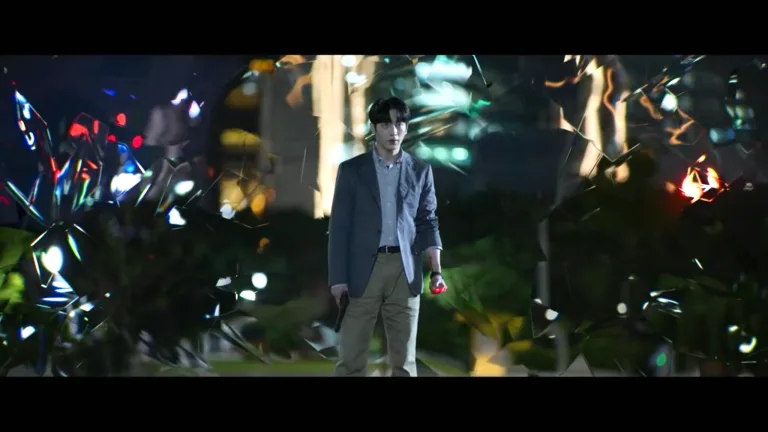
Feel better? Okay let’s go then…
I could travel back in time from my ‘now’ but somebody else could travel back in time from my future (their ‘now’). These two acts of time travel would then become part of the fabric of time. Neither of us could travel forward in time because an objective ‘future’ does not exist.
Solstices makes a pretty good case for the growing block universe theory, especially because one of our characters remarks that “time doesn’t flow”. This implies that time is in fact being rewritten as The Ghost’s interventions in the timeline lead to future changes we can’t see but she can. She is making changes to the past that are only being expressed as the potential futures coalesce into a realised present from her perspective.
It does explain why, at one point, our male lead finds himself living a different life in a new timeline. This kind of cause and effect time travel is used most popularly in Doctor Who. Spacetime is a block of reality that is literally reconfigured due to time travel (hence the Tenth’s Doctor memorable, if somewhat inarticulate, “big ball of timey wimey stuff”). The Doctor and other time travellers, such as Timelords, are the only beings who remember the previous iterations of the timeline as it quite literally ceases to exist. Time is rewritten.
The problem with this kind of linear cause and effect (change an event through time travel, change the timeline) is paradoxes. If the timeline is changed, then the event that sparked your need to time travel didn’t exist so you’d never need to go back in time to change it.
Doctor Who deals with paradoxes by handwaving them. However, despite Doctor Who’s madcap chaos, if the universe was a closed system then this suggests that time travel either isn’t possible or that nothing can ultimately be changed. After all, if the past and the present exist as a block, then any change that can happen must by definition already have happened. Doctor Who itself says that time can be rewritten in small and unimportant ways but that there are fixed points in time that cannot be changed. Not even by a Timelord.
In the German drama, Dark, the timeline existed as a set reality with each time traveller merely pacing out activities they’d already undertaken to make the universe what it was. As the bubble universe was created, every action and reaction involving time travel had instantly already happened. Every action to change the timeline therefore only perpetuated the status quo. Our characters were trapped retracing their own steps in an endless loop.
The expanding block is an attempt to overcome this limitation by opening the possibility of probabilistic change at the edge of the block’s expansion. However, the ending of Grid seems to contradict the growing block universe theory because the ending of Grid seems to require the existence of a multiverse to make sense. In that case, the growing block universe theory starts to be less compelling as an explanation for the drama’s time travel especially since block universe theory and the multiverse theory are incompatible.
In the growing block universe theory, every molecule in the existing universe – past and present – already occupies its own time and place and the only scope for change would be in the unfolding future as the block expands because that’s the only point at which probabilities comes into play. These small probabilistic changes and the interactions with a second bubble universe, allowed the characters of Dark to finally escape their reality prison.
We see the timeline change in Grid. Dozens, even hundreds of times. In ways that are small (in one sequence in the first episode, the Ghost stops a character from stealing a wallet by intervening over and over again until she gets it right) and in ways that are comparatively large (the construction of the Grid itself). While the Ghost implies that she’s rejoining her timeline and is herself subject to changes to that timeline (at one point she thanks the male lead for fixing genetic problems she’d gained from a dysfunctional Grid), there begins to be multiple versions of characters; something that could only happen with the multiverse.
At various points, we see either The Ghost or other characters travel to a point that seems to be outside of spacetime before they can make a jump to a new point. A kind of waystation like trains returning to a hub before going to a new destination. In the growing block universe theory, this place would need to be outside the universe: a statement that is paradoxical. The universe consists of all of spacetime so there is nothing outside of it. There could however be universes parallel to our own and a theoretical space between them.
All of this instead implies the multiverse theory of time travel is at play. Each change creates a new timeline while the old timeline continues without change. Grid’s final scene shows us characters in the show’s timeline who have previously died as well as multiple versions of others. This would only be possible if time travel technology was instead allowing someone to travel through the multiverse. Thus a traveller from one future could travel back into a reality where they had previously died. This is because there would be an entire multiverse with infinite versions of that traveller, some of whom never time travelled but many of whom did.
Need a break? Here’s a visual representation of temporal perspective
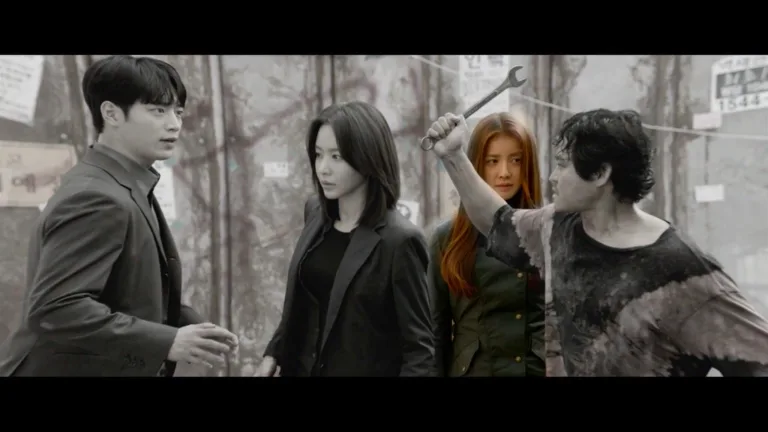
For a primer on the multiverse theory of time travel, I try to explain it in my post on the woeful Alice. (Instead of blocks of spacetime, you now need to think of trees).
Like Alice (or rather like Alice should have been, but wasn’t), Grid’s time travel is best explained as a framing of perspective in multiverse theory rather than the growing block (although considering the perspective angle I understand the appeal).
Throughout Alice, we see many time travellers visiting our reality and changing things. From their perspective, there is no impact as they will return to their own reality at the end of their journey. But our male lead and the other 2020 characters are looking at the situation from a different perspective. If each trip back in time creates a new timeline then our male lead is both continuing up the original timeline and also moving through a new timeline created by the change. And since he isn’t the traveller then he’ll be unaware of any changes to his timeline. Thus the Jin-gyum we meet in the first episode of Alice is not the Jin-gyum from the final episode. That Jin-gyum is still in the original timeline.
The same could be said of Grid.
Each time The Ghost time travels, she creates a new timeline. Or, to be more accurate, each time she travels and creates a paradox, this paradox is resolved by creating a new timeline. The Grid itself would be such a paradox. If the Ghost comes from a future where the Grid did not get created until much later (or indeed at all) then going back and sparking the Grid’s creation would remove the need for her to travel in time. This paradox can only be resolved by creating a new version of the timeline whereby both realities – the one she came from and the new one created – still exist.
Each time we refocus on our main characters in their investigation, we’re meeting an entirely new version of them. These are the ones who remember the very specific set of events that The Ghost is trying to set into motion because they are unaware of those changes. For them, this is their unchanging reality.
So while our drama is following our investigators around, the narrative is instead following The Ghost around. In fact, despite her screentime and the drama’s focus, she is the main character.
I have some thoughts on this that I’ll save for the main review. But suffice it to say, the show’s time travel makes more sense if you realise that The Ghost’s past is strewn with realities where she failed and moved on. Ones where some of our characters died, ones where others live. When male lead, Kim Sae-ha, wrests control of time travel from her, he then begins to create his own worlds and to remember the ways in which reality can change.
But each time a different person time travels, they take that narrative control for themselves.
Grid ends with a metaphysical battle for that control. In some realities, The Ghost wins. In others, her enemies do. In some Sae-ha is alive. In some The Grid fails. The timeline simply becomes an unfolding set of probabilistic outcomes with every possible variation of every action occurring somewhere and the fight continuing however and whenever it can.
So, to step somewhat on my review ending, it’s a version of reality that doesn’t allow our writer to tie things up in a neat little bow.
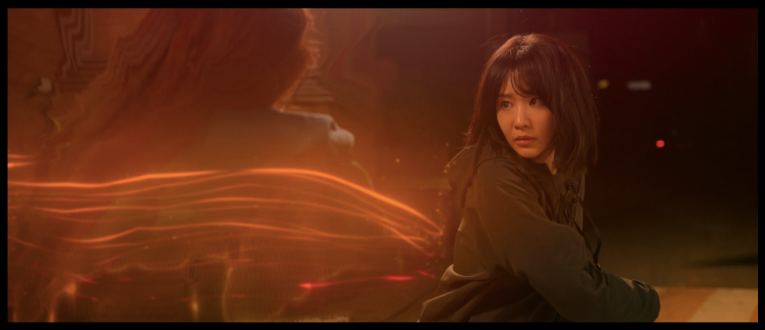

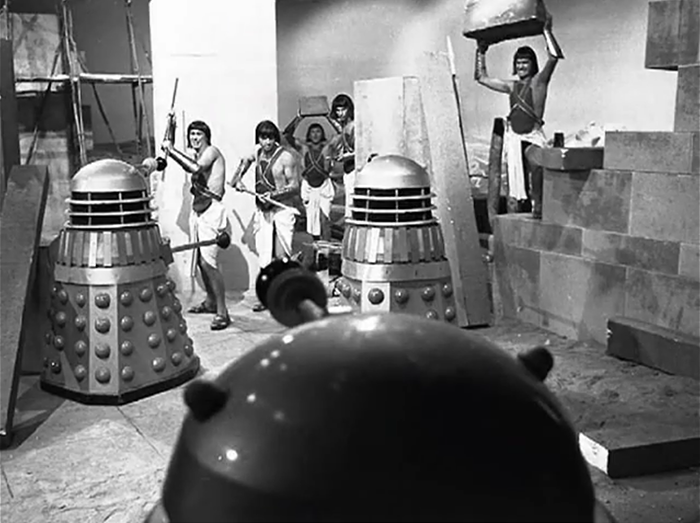
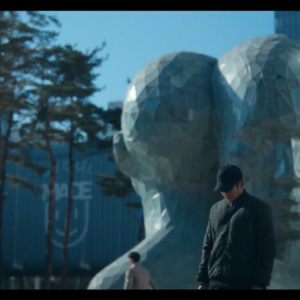
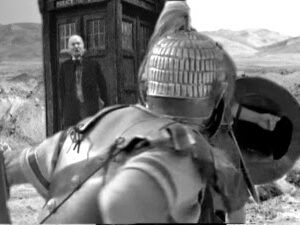
I always say, as Cap. Janeway did before (or is it in the future?), that time travels do give a headache. But what can I say, I love them, and as a time traveler lover, I will embrace any theory I’m given as long as it makes sense. And Grid made sense all the time.
As I was reading about the block theory I was reminded of the Spanish show “El Ministerio del Tiempo” (The Ministry of Time), in which it is always said “Time is what it is” meaning the present moment is the present and there is no future. All doors can only grant a travel to the past (you time travel through doors). If you haven’t watched I hope you can find it subbed, because it’s really good (although plenty of inner jokes, that’s true).
Ooh, I’ve been meaning to watch El Ministerio del Tiempo for years. It was sold to Netflix and I’m sure it was available there at some point. I should go and track it down! Thanks for the rec.
Awesome, LT 😉
Thanks Sean ☺️